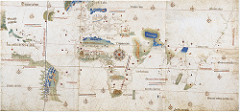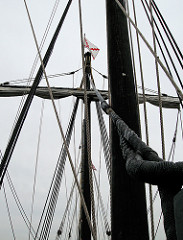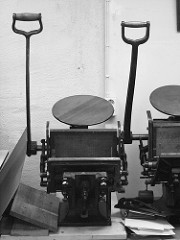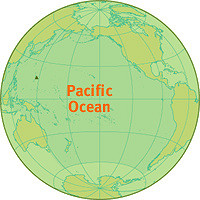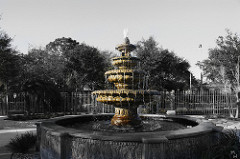The 3 powers to colonize the new world
Britain, Spain, and France
Mayas
In Mountains, Deserts, Rainforests of Guatemala, Belize, Honduras, and Mexico the Mayas has built temples and pyramids clustered around broad plazes. They has no telescope, but built their own kind of observatory and made accurate calenders.
Incans
In Peru they built palaces surrounded by high walls, and had connected their mtn. towns with a network of roads. To farm steep land they built terraces. Where water was scarce they had cut canals and erected store aqueducts to irrigate their crops. Gave us the tomato and potato. They has a strong gov. with powerful rulers. Succeeded without a system of writing. Had buildings covered with gold in Cuzco., defeated by Spanish Francisco Pizarro conquered Atahualpa, kills them with disease
Aztecs
Warlike people who lived in Central Mexico. They were clever architects. Built grand temples and high pyramids. They fashioned their gold into jewelry so ornate as to make European kings jealous. Never invented the wheel, and had no iron tools. Their beast of burden was the dog, and in Peru the llama. Had not built ships to cross ocean.
Why Europeans went exploring
1. The population in England
2. Advancements in Science
3. Marco Polo
4. Religon
Treaty of Tordesillas
a 1494 agreement between Portugal and Spain, declaring that newly discovered lands to the west of an imaginary line in the Atlantic Ocean would belong to Spain and newly discovered lands to the east of the line would belong to Portugal.
Era of Exploration
15th - 16th century
The astolabe
Used to figure out the latitude and see where they were on the map.
The caravel
Developed by the Portuguese. They had lateen sails and were easy to handle. The planks were laid edge to edge and they could venture into open seas. They could go on for long voyages and could be changed to square rigging.
Copernicus
Polish astronomer who produced a workable model of the solar system with the sun in the center (1473-1543)
Johann Gutenberg
German printer who was the first in Europe to print using movable type and the first to use a press (1400-1468)
Marco Polo
Venetian merchant and traveler. His accounts of his travels to China offered Europeans a firsthand view of Asian lands and stimulated interest in Asian trade in the 13th century and served Kublai Khan (1254-1324)
Prince Henry "the Navigator"
Portuguese prince who thought that explorers could find a shortcut around Africa to Asia (1394-1460)
Vasco Nunez de Balboa
a spanish explorer who led an expedition across Panama and discovered the Pacific Ocean
Hernando Cortez
Spanish conquistador who defeated the Aztecs and conquered Mexico (1485-1547)
Conquistadors
spanish soldiers and explorers who led military expeditions in the Americas and captured land for Spain
Ponce de Leon
Explored Florida looking for the Fountain of Youth. In 1565, St. Augustine became the first permanent Spanish settlement.
Francisco de Coronado
Spanish explorer who heard stories about the Seven Cities of Gold and set out to find them. He found Texas, Kansas, New Mexico, and Arizona.
Francisco Pizarro
Spanish explorer who conquered the Incas in what is now Peru and founded the city of Lima, also took gold, silver and enslaved the Incas in 1532.
Ferdinand Magellan
Portuguese navigator who led the Spanish expedition of 1519-1522 that was the first to sail around the world (circumnavigated). He also reached the Philippines.
Leif Eriksson
This person and the vikings tried to sail from Norway to Greenland but strong winds blew his ship off course and carried his ship all the way to the North American coast (Canada).
The Northwest Passage
a passage that was thought to go through North America to the West Indies, does not exist
Amerigo Vespucci
Florentine navigator and mapmaker who explored the coast of South America. He was the first to realize that it was a new world so America was named in his honor (1454-1512).
John Cabot
Italian-born navigator explored the coast of New England, Nova Scotia, and Newfoundland while looking for Northwest Passage. Gave England a claim in North America.
Giovanni da Verrazzano
First European to explore the Atlantic coast of North America between South Carolina and Newfoundland, including New York Harbor and Narragansett Bay, in 1524. An Italian explorer in the service of France. He was sailing to North America in search of a sea route to the Pacific.
Jacques Cartier
1491-1557 French explorer who began the first of his voyages to Canada in search of the NorthWest Passage. During his second voyage, 1535-1536, Cartier sailed up the St. Lawrence River as far as the present site of Quebec city. Cartier's voyages established France's claims to North America.
Queen Elizabeth 1
Came to power in 1558; made Protestantism the dominant power in England. The "Virgin Queen". She was also the main colonizer in the new world.
Sir Walter Raleigh
(1552?-1618) English courtier, navigator, colonizer, and writer. A favorite of Elizabeth I, he introduced tobacco and the potato to Europe. In 1585, Raleigh sponsored the first English colony in America on Roanoke Island in present-day North Carolina. It failed and is known as " The Lost Colony Convicted of treason by James I, he was released for another expedition to Guiana and executed after its failure.
Humphery Gilbert
The first English explorer who set off from England in 1583 and headed toward the coast of Newfoundland. The first English attempt at colonization. However, he died at sea and his brother SIR WALTER RALEIGH picked up the torch. He organized an expedition that landed in 1585 on North Carolina's Roanoke Island, off the coast of Virgina, named after the 'virgin queen' Elizabeth. The colony failed.
Richard Hakluyt
English promoter of exploration. In 1584 he wrote A Discourse of Western Planting in which he pleaded for colonies to accomplish diverse objects: to extend the reformed religion, to expand trade, to supply England's needs from her own dominions, and various other reasons for exploration.
Roanoke
Established in 1587. Called the Lost Colony. It was financed by Sir Walter Raleigh, and its leader in the New World was John White. All the settlers disappeared, and historians still don't know what became of them.
"Croatoan"
John White saw this word carved onto a post of the Lost Colony, it is the only clue to the fate of settlers who disappeared from Roanoke.
Joint Stock
A company made up of a group of shareholders. Each shareholder contributes some money to the company and receives some share of the company's profits and debts.
The People who defeated the Spanish Armanda
...
The Mayflower Compact
Agreement signed (1620) by Pilgrims before they landed at Plymouth Rock to agree how they would govern their colony.
This was the first self-rule by American colonists. Connection to American democracy: We make agreements to settle things and keep our country a unified nation.
First successful colony
Jamestown (1624) was the first permanent english settlement called by King James led by Captain John Smith. Cash Crop: Tobacco
John Smith
English explorer who helped found and govern the colony at Jamestown, Virginia. He was said to have been saved by Pocahontas (1580-1631). His leadership and strict discipline helped the Virginia colony get through the difficult first winter.
John Rolfe
Rolfe was an Englishman who became a colonist in the early settlement of Virginia. He is best known as the man who married the Native American, Pocahontas and took her to his homeland of England. Rolfe was also the savior of the Virginia colony by perfecting the tobacco industry in North America. Rolfe died in 1622, during one of many Indian attacks on the colony.
Indentured Servant
A migrant to British colonies in the Americas who paid for passage by agreeing to work for a set term ranging from four to seven years.
John Winthrop
As governor of Massachusetts Bay Colony, Winthrop (1588-1649) was instrumental in forming the colony's government and shaping its legislative policy. He envisioned the colony, centered in present-day Boston, as a "city upon a hill" from which Puritans would spread religious righteousness throughout the world.
Anne Hutchinson
She preached the idea that God communicated directly to individuals instead of through the church elders. She was forced to leave Massachusetts in 1637(went to Rhode Island, then left). Her followers (the Antinomianists) founded the colony of New Hampshire in 1639.
Direct Revelation
The self communication of god to a person or people. For christians this includes 2 sources: The scriptures and the tradition of the church.
Massachusetts Bay Colony
One of the first settlements in New England; established in 1630 and became a major Puritan colony. Became the state of Massachusetts, originally where Boston is located. It was a major trading center, and absorbed the Plymouth community. The colony established political freedom and a representative government.
Roger Williams
English clergyman and colonist who was expelled from Massachusetts for criticizing Puritanism. He founded Providence in 1636 and obtained a royal charter for Rhode Island in 1663 (1603-1683) for separation of Church and State.
Salem Witch Trials
in the 1680's and 1690's adolescent girls of Salem, Massachusetts, accused several West Indian servants of voodoo lore, and hundreds of people (mostly women) of witchcraft (exercising of satanic powers), ending with 19 being put to death, and the girls who had been the accusers, admitting that they fabricated their story. This was one of the many examples of hysteria and chaos that broke out due to the tensions that built in Puritan communities.
Squanto
Native American who helped the English colonists in Massachusetts develop agricultural techniques (how to fish, farm and hunt) and served as an interpreter between the colonists and the Wampanoag.
New Haven
In 1638, this colony was established in Conneticut. It was founded by John Davenport and other Puritans in 1638 in order to establish a closer relationship between the church and the state than in Massachusetts. Although only squatters without a charter, the colonists dreamed of making New Haven a bustling seaport. But they fell into disfavor with Charles II as a result of having sheltered two of the judges who had condemned his father, Charles I to death. In 1662, the crown granted a charter to Conneticut that merged the new colony with more democratic settlements in the Conneticut Valley. It was also the site of the trial of Africans who in 1839 took control of the Spanish slave ship Amistad.
Samuel de Champlain
French explorer in Nova Scotia who established a settlement on the site of modern Quebec (1567-1635). The major role Champlain played in the St Lawrence River area earned him the title of "father of New France."
Duke of York
- Charles II gave the entire area between Connecticut and Maryland to his brother. This created a problem with the Dutch who occupied this area. In 1664 English forces capture New Amsterdam (renamed it New York) without a fight and the rest of the Dutch settlements soon followed. He gave New jersey to Lord Berkely and Sir George Carteret.
William Penn
Penn, an English Quaker, founded Pennsylvania in 1682, after receiving a charter from King Charles II the year before. He launched the colony as a "holy experiment" based on religious tolerance.
John Locke
Wrote Two Treatises on Government as justification of Glorious Revolution and end of absolutism in England. He argued that man is born good and has rights to life, liberty, and property. To protect these rights, people enter social contract to create government with limited powers. If a government did not protect these rights or exceeded its authority, Locke believed the people have the right to revolt. The ideas of consent of the governed, social contract, and right of revolution influenced the United States Declaration of Independence and the U.S. Constitution. He also laid the foundations for criticism of absolute monarchy in France.
James Oglethorpe
Founder and governor of the Georgia colony. He ran a tightly-disciplined, military-like colony. Slaves, alcohol, and Catholicism were forbidden in his colony. Many colonists felt that Oglethorpe was a dictator, and that (along with the colonist's dissatisfaction over not being allowed to own slaves) caused the colony to break down and Oglethorpe to lose his position as governor.
Paul Revere
American silversmith remembered for his midnight ride (celebrated in a poem by Longfellow) to warn the colonists in Lexington and Concord that British troops were coming (1735-1818). He was also friends with Samuel Adams.
John Peter Zenger
Journalist who questioned the policies of the governor William Cosby of New York in the 1700's. He was jailed; he sued, and this court case was the basis for our freedom of speech and press. He was found not guilty.
Letter of Marque
a permit or license issued by a country at war authorizing the captain of a privately owned ship to attack the enemy merchant ships to capture and sell their cargo.
Charles 1
tried to advacate divine right of kings and bring more absolutism. brought to much catholictism to te church of england He was executed in 1649.
Oliver Cromwell
English military, political, and religious figure who led the Parliamentarian victory in the English Civil War (1642-1649) and called for the execution of Charles I. As lord protector of England (1653-1658) he ruled as a virtual dictator. This was the dictator who ruled over England after the English civil war. His death provided the military government collapse of England.
Charles 2
was a man who was disliked for his support of catholicism in england, He was an English King for whom North and South Carolina were named. He observed variations in the characteristics of animals and plants on the different islands of Galapagos. He ruled during glorious revolution.He also dismissed parliament, and restored monarchys power in England after death of cromwell (RESTORATION ERA).
James 2
True Faith Evidenced by Good Works
William and Mary
Joint King and Queen of England in 1688 ,after the Glorious Revolution, that recognized the supremacy of the English Parliament. During their reign King James' Catholic reign ended. As they were Protestant, the Puritans were pleased because only protestants could be office-holders.
The Glorious Revolution
In order to prevent a Catholic Dynasty the English Parliament drove out James II following the birth of his son and replaced him with the protestant Stahoulder of the Nederlands William, and his wife and daughter of James II, Mary II. This was a relativly bloodless revolution. (excepting the Irish Rebellion in which an Catholic coalition of English-Irish-French troops led by James were butchered).
The Navigation Acts
Parliament passed laws to ensure that only England benefited from trade with the colonies, such as shipping certain products exclusively to England. Colonists were angry because they were forbidden to trade with other colonies, but many colonists ignored these laws or found ways to get around them.
Edward Braddock
A British commander during the French and Indian War. He attempted to capture Fort Duquesne in 1755. He was defeated by the French and the Indians. At this battle, Braddock was mortally wounded.
James Wolfe
The British general whose success in the Battle of Quebec won Canada for the British Empire. Even though the battle was only fifteen minutes, Wolfe was killed in the line of duty. This was a decisive battle in the French and Indian War.
Montcalm
Military officer at Québec City to 14 Sept 1759. Defeated by the English (James Wolfe) at the Battle of the Plains of Abraham in 1759. This event led to the end of the French and Indian War.
Bourgeoisie
educated, middle class of France, including merchants, industrialists, and professional people. They provided a force behind the Revolution.
Primogeniture
A system of inheritance in which the eldest son in a family received all of his father's land. The nobility remained powerful and owned land, while the 2nd and 3rd sons were forced to seek fortune elsewhere. Many of them turned to the New World for their financial purposes and individual wealth.
Bacon's Rebellion
1676 - Nathaniel Bacon and other western Virginia settlers were angry at Virginia Governor Berkley for trying to appease the Doeg Indians after the Doegs attacked the western settlements. The frontiersmen formed an army, with Bacon as its leader, which defeated the Indians and then marched on Jamestown and burned the city. The rebellion ended suddenly when Bacon died of an illness.
French and Indian War
Was a war fought by French and English on American soil over control of the Ohio River Valley-- English defeated French in1763. Historical Significance: established England as number one world power and began to gradually change attitudes of the colonists toward England for the worse. Also known as the seven years wars
Puritans and Quakers
P: only ministers can talk to God, Women had to ask husbands to pray for them, strict rules
Q: all humans have an inner light that connects them with God, women could read the bible out loud & pray
ex: Mary Dyer and Anne Hutchinson
Puritans
A religious group who wanted to purify the Church of England. They came to America for religious freedom and settled Massachusetts Bay. English Protestant dissenters who believed that God predestined souls to heaven or hell before birth. They founded Massachusetts Bay Colony in 1629.
Quakers
English dissenters who broke from Church of England, preached a doctrine of pacificism, inner divinity, and social equity, under William Penn they founded Pennsylvania, they were very tolerant and non violent.
Separatists
Pilgrims that started out in Holland in the 1620's who traveled over the Atlantic Ocean on the Mayflower. These were the purest, most extreme Pilgrims existing, claiming that they were too strong to be discouraged by minor problems as others were. They were a sub-group of the Puritans who vowed to break completely with the Church of England.
The Peace of Paris
Britain received all of French Canada and all territory south of Canada and east of the Mississippi River, France and its ally, Spain, lost their West Indian colonies, Britain received Florida from Spain, Spain received from France its territory west of the Mississippi.March 1856 - guaranteed autonomy of the Danubian prinipalities of Moldavia and Wallachia, the independence of Turkey, and the neutrality of the Black Sea. Ended the American Revolutionary war.
Proprietorships
Grants from a mother country for ownership of land to a colonial group of people or business with the prerogative. A business owned by one person, with no legal identity distinct from that of the owner. Halfway between a royal colony and self-governed colony; appointed governor, set up law courts, collected land tax, allowed people a form of self -government.
Rhode Island
Roger WIlliams; Puritans; wanted religous tolerance & thought Church had too much power. A colony that didn't have royal governors, it elected its own governor under self governing charters. The last state to ratify the constitution, and the only state that did not send a delegate to the Constitutional Convention.
